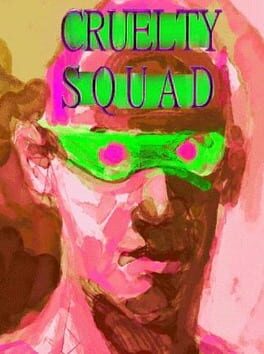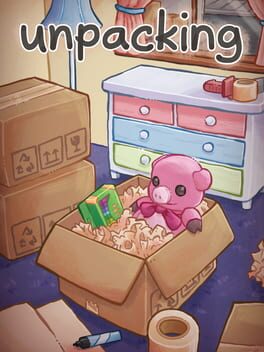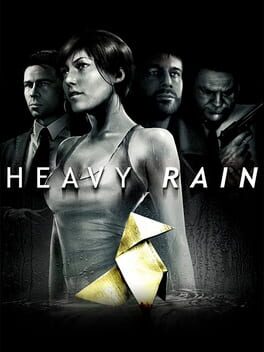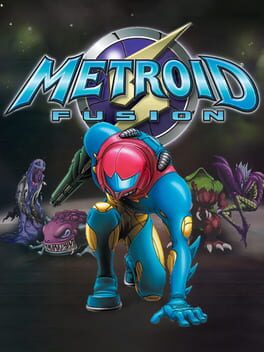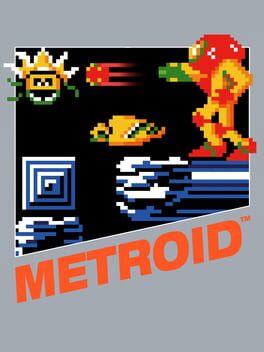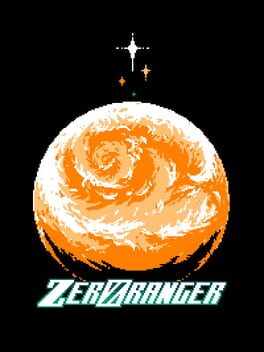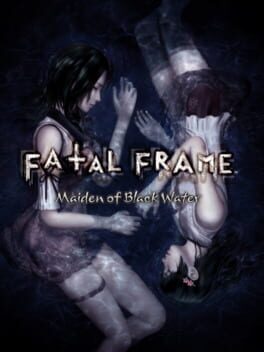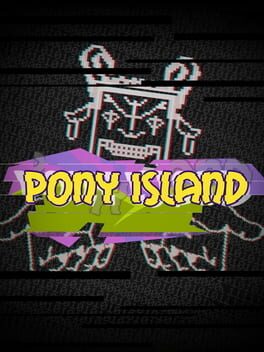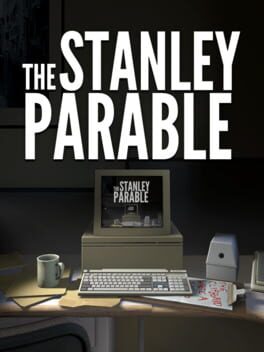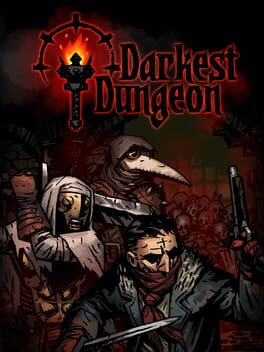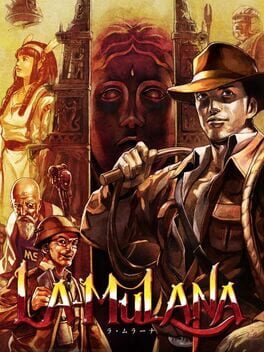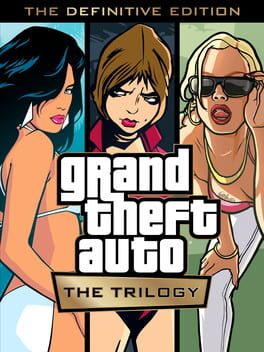megahouten
334 Reviews liked by megahouten
Cruelty Squad
2021
It's easy to take a glance at Cruelty Squad's unpleasant artstyle and dismiss it for being obvious and unsubtle about its intent, when most of critical praise seemingly rests on its ability to create a playable shitpost deep fried meme that bluntly satirizes the sewer corporate modern age we live in and not much else inbetween. That however would be understating the talent and craft that is required to make such effective "heavy handed" art like Cruelty Squad.
Baffling to realize that this was Ville Kallio's first shot at videogames, because he displays such a strong understanding of the medium and utilizes so much of its strengths in ways that no other developers have really tapped into to create what I can only describe as a arthouse masterpiece of counter intuitive art and game design. Our infactuation with cyberpunk dystopia has created such pleasing worlds to look at in all of fiction that the only thing Cruelty Squad had to do was present the existential nightmare we already live in it its true colors. Making a house the most expensive item that gates you from the rest of the game's content might come across as portentous hassle for the player and an easy cheap jab at Capitalism™, but it doesn't make its statement any less truer and effective.
Getting accustomed to Cruelty Squad vomit inducing textures ends up becoming an inevitability, and the game beneath it surprisingly reveals enough enticing complexity and kinesthetic gratification that will distract you from the uglyness of it all. DNA taken straight out of Quake make traversal in Cruelty Squad's industrial purgatory oddly satisfying and addicting to exploit as you discover there is fun in retrying missions to find new secrets in the open ended maze like levels and speedunning CEO and landlord assassinations, raking in the dough to invest and buy more expensive game changing implants that further blur the line between man and biomachine monstrosity. Sooner than expected, you end up forgetting the garish mismatched colors and low poly disorienting textures that assault your senses, and Cruelty Squad ends up becoming just another game to master like all the others that came before it.
Were this any other game, I would be taking down a couple of points for it losing its luster after the initial hours, but Cruelty Squad losing its repulsiveness over time just ends up reinforcing its message that much more. In the same way that Cruelty Squad visualizes what violent videogames must look like to our parents, it displays for a brief moment the reality and future humanity has devised for itself, as if putting on the They Live glasses for the first time. But eventually we get used to it. And we forget, we comply, we find pleasure in it. Luckily we get the chance once in a while to experience something like Cruelty Squad to remind us that we are all just meat sacks ticking up and down on a graph, selling ourselves short to the highest bidder.
PS: The easiest method I found out to make quick money in Cruelty Squad was to kill Elon Musk's personification over and over again and betting on the stock market right after. Something very poignant and cathartic about that. Don't tank my crypto next time, asshole.
Baffling to realize that this was Ville Kallio's first shot at videogames, because he displays such a strong understanding of the medium and utilizes so much of its strengths in ways that no other developers have really tapped into to create what I can only describe as a arthouse masterpiece of counter intuitive art and game design. Our infactuation with cyberpunk dystopia has created such pleasing worlds to look at in all of fiction that the only thing Cruelty Squad had to do was present the existential nightmare we already live in it its true colors. Making a house the most expensive item that gates you from the rest of the game's content might come across as portentous hassle for the player and an easy cheap jab at Capitalism™, but it doesn't make its statement any less truer and effective.
Getting accustomed to Cruelty Squad vomit inducing textures ends up becoming an inevitability, and the game beneath it surprisingly reveals enough enticing complexity and kinesthetic gratification that will distract you from the uglyness of it all. DNA taken straight out of Quake make traversal in Cruelty Squad's industrial purgatory oddly satisfying and addicting to exploit as you discover there is fun in retrying missions to find new secrets in the open ended maze like levels and speedunning CEO and landlord assassinations, raking in the dough to invest and buy more expensive game changing implants that further blur the line between man and biomachine monstrosity. Sooner than expected, you end up forgetting the garish mismatched colors and low poly disorienting textures that assault your senses, and Cruelty Squad ends up becoming just another game to master like all the others that came before it.
Were this any other game, I would be taking down a couple of points for it losing its luster after the initial hours, but Cruelty Squad losing its repulsiveness over time just ends up reinforcing its message that much more. In the same way that Cruelty Squad visualizes what violent videogames must look like to our parents, it displays for a brief moment the reality and future humanity has devised for itself, as if putting on the They Live glasses for the first time. But eventually we get used to it. And we forget, we comply, we find pleasure in it. Luckily we get the chance once in a while to experience something like Cruelty Squad to remind us that we are all just meat sacks ticking up and down on a graph, selling ourselves short to the highest bidder.
PS: The easiest method I found out to make quick money in Cruelty Squad was to kill Elon Musk's personification over and over again and betting on the stock market right after. Something very poignant and cathartic about that. Don't tank my crypto next time, asshole.
Unpacking
2021
Don’t like to go for the “can relate” since I think anything can resonate with anyone despite not having anything in common. The thing that is making me wonder about Unpacking is that there was a single yet very strong “can relate” moment in the game, even when the situations are not that similar, while the game is generally unrelatable to me.
In short, right now I’m the opposite of this game. I have not moved a lot through my life, nor even done big rearrangements at home either, and I try to keep as few things as possible. So here I am playing a game about someone who has moved like 8 times and likes to keep a lot of books, games, consoles, figures, plushies… There are some more mundane things to unpack too, but the core is pretty clearly those things that tell about your hobbies, and maybe about you.
Sticking with my thinking that not being relatable does not matter that much, the problem is in what is supposed to be told about someone or not. And yeah, I know plenty of things about what the protagonist of the game likes, her hobbies, some of her aspirations (professional or personal), and even about some of the bigger events of her life… in other words, I don’t know that person. Knowing what someone likes, that is knowing them superficially, or even a bit of what they have gone through is a good entry point for establishing a deeper understanding, and just that. All of these very strong attachments to superficial characteristics are more common nowadays for a lot of factors, in an era when you can come to contact with millions of people, it’s easier to define someone for what they like, the fastest way possible, and to want to be defined by the hobbies that interest you most. All of that is natural, and again the problem is not so much in establishing a first contact through that but in being incapable of reaching further on.
What kept me thinking a bit is that in the last level, there is one very specific room that caused the exact opposite reaction than the rest of the game, a single scene where I could completely relate in the perfect moment. Ironically, a moment that does not tell anything about no one, in this one not even the preferences of the protagonist are important, but a moment that talks more about the impact in your life that such a thing causes where even the necessity of preparing a room is emotional. Maybe the key of Unpacking is in welcoming the changes, wanted or not… but after the moment I liked so much I spent 10 minutes trying to discover where some little red thing was supposed to fit for our protagonist's taste.
In short, right now I’m the opposite of this game. I have not moved a lot through my life, nor even done big rearrangements at home either, and I try to keep as few things as possible. So here I am playing a game about someone who has moved like 8 times and likes to keep a lot of books, games, consoles, figures, plushies… There are some more mundane things to unpack too, but the core is pretty clearly those things that tell about your hobbies, and maybe about you.
Sticking with my thinking that not being relatable does not matter that much, the problem is in what is supposed to be told about someone or not. And yeah, I know plenty of things about what the protagonist of the game likes, her hobbies, some of her aspirations (professional or personal), and even about some of the bigger events of her life… in other words, I don’t know that person. Knowing what someone likes, that is knowing them superficially, or even a bit of what they have gone through is a good entry point for establishing a deeper understanding, and just that. All of these very strong attachments to superficial characteristics are more common nowadays for a lot of factors, in an era when you can come to contact with millions of people, it’s easier to define someone for what they like, the fastest way possible, and to want to be defined by the hobbies that interest you most. All of that is natural, and again the problem is not so much in establishing a first contact through that but in being incapable of reaching further on.
What kept me thinking a bit is that in the last level, there is one very specific room that caused the exact opposite reaction than the rest of the game, a single scene where I could completely relate in the perfect moment. Ironically, a moment that does not tell anything about no one, in this one not even the preferences of the protagonist are important, but a moment that talks more about the impact in your life that such a thing causes where even the necessity of preparing a room is emotional. Maybe the key of Unpacking is in welcoming the changes, wanted or not… but after the moment I liked so much I spent 10 minutes trying to discover where some little red thing was supposed to fit for our protagonist's taste.
Heavy Rain
2010
This review contains spoilers
El misterio no es quien es el Asesino del Origami. El misterio es como alguien es capaz de darle millones de presupuesto a David Cage para perpetrar lo que hace.
Al grano: David Cage es un autor completamente horrible. Ahí están de ejemplo Beyond: Two Souls y este Heavy Rain.
Me cuesta entender como en una historia de 8-10 horas puede meter tantas cutreces, sinsentidos, conveniencias, casualidades y cosas sin explicación. Como puede tener personajes tan planos y genéricos donde prácticamente nunca hacen nada medianamente coherente. Como es capaz de apañárselas para mostrar todos los clichés inventados por el ser humano sin aportar nada. Como es capaz de dar tanta vergüenza ajena en tan poco tiempo. Hasta tiene mérito.
El único personaje femenino de los 4 protagonistas, Madison, es uno de los más deplorables que he tenido la desgracia de ver. Literalmente lo único que sucede con ella es: salir desnuda (o desnudándose), ayudar y curar al protagonista masculino en todo lo que necesite aunque no lo conozca y sepa que es sospechoso de asesinato, que intenten violarla de manera gratuita y bailar sensualmente. Literalmente es lo que hace en todo el juego. No vale para nada. En la parte final Cage intenta darle un sentido haciendo que descubra quien es el asesino, pero da igual porque los otros 2 personajes jugables ya lo saben y el uso que ella le da a esa información solo lleva a que el antagonista la encierre mientras que los otros 3 personajes (masculinos, obviamente) llevan la acción. Afortunadamente en mi partida murió al final y me libre un poco de la vergüenza ajena.
Hazte mirar tu trato hacia las mujeres, Cage, que entre Beyond Two Souls alias escuchar a Ellen Page gritar y gemir durante 10 horas y Madison, tienes telita.
También David odia a sus personajes, aunque pretenda sugerir lo contrario. A lo largo del juego los pone a todos en situaciones de violencia y sufrimiento salidas de la nada, como ese intento de violación porque sí, porque necesita lágrimas y drama para que los jugadores se piensen que lo que ven es intenso. Es como un niño aplastando hormigas, siendo estas sus creaciones.
Quiere que llores, quiere que te emociones y reflexiones. De ahí la música dramática que suena constantemente, la trama que trata sobre niños muertos y desaparecidos, las caras en primer plano en los tiempos de carga, la paleta de colores grises, la lluvia. Pero también quiere que te excites, de ahí lo de Madison. Quiere llenar la historia de acción, peleas, persecuciones, tiroteos a lo John Wick y pruebas a lo Saw. Porque al final lo que creo es que su verdadera intención es hacer una trama de acción típica pero lo viste de temas dramáticos para aparentar ser más importante y engañar a todos los jugadores que pueda.
Porque la realidad es que en muchas escenas le da más importancia a la pelea y a su corografía que a una madre hablando de su hijo muerto. Encima de autor malo, también impostor.
Y la jugabilidad es paupérrima, la cámara atroz y los controles toscos. Y él lo sabe. Por eso hace que tengas que pulsar botones hasta para lavarle los dientes al prota, para dar una falsa sensación de interactividad.
Pero lavarle los dientes o vestir a los personajes no hace ni que me involucre más en la trama ni que me caigan mejor. Lo único que hace es confirmarme lo desesperado que está para que usemos el mando de la consola.
Al grano: David Cage es un autor completamente horrible. Ahí están de ejemplo Beyond: Two Souls y este Heavy Rain.
Me cuesta entender como en una historia de 8-10 horas puede meter tantas cutreces, sinsentidos, conveniencias, casualidades y cosas sin explicación. Como puede tener personajes tan planos y genéricos donde prácticamente nunca hacen nada medianamente coherente. Como es capaz de apañárselas para mostrar todos los clichés inventados por el ser humano sin aportar nada. Como es capaz de dar tanta vergüenza ajena en tan poco tiempo. Hasta tiene mérito.
El único personaje femenino de los 4 protagonistas, Madison, es uno de los más deplorables que he tenido la desgracia de ver. Literalmente lo único que sucede con ella es: salir desnuda (o desnudándose), ayudar y curar al protagonista masculino en todo lo que necesite aunque no lo conozca y sepa que es sospechoso de asesinato, que intenten violarla de manera gratuita y bailar sensualmente. Literalmente es lo que hace en todo el juego. No vale para nada. En la parte final Cage intenta darle un sentido haciendo que descubra quien es el asesino, pero da igual porque los otros 2 personajes jugables ya lo saben y el uso que ella le da a esa información solo lleva a que el antagonista la encierre mientras que los otros 3 personajes (masculinos, obviamente) llevan la acción. Afortunadamente en mi partida murió al final y me libre un poco de la vergüenza ajena.
Hazte mirar tu trato hacia las mujeres, Cage, que entre Beyond Two Souls alias escuchar a Ellen Page gritar y gemir durante 10 horas y Madison, tienes telita.
También David odia a sus personajes, aunque pretenda sugerir lo contrario. A lo largo del juego los pone a todos en situaciones de violencia y sufrimiento salidas de la nada, como ese intento de violación porque sí, porque necesita lágrimas y drama para que los jugadores se piensen que lo que ven es intenso. Es como un niño aplastando hormigas, siendo estas sus creaciones.
Quiere que llores, quiere que te emociones y reflexiones. De ahí la música dramática que suena constantemente, la trama que trata sobre niños muertos y desaparecidos, las caras en primer plano en los tiempos de carga, la paleta de colores grises, la lluvia. Pero también quiere que te excites, de ahí lo de Madison. Quiere llenar la historia de acción, peleas, persecuciones, tiroteos a lo John Wick y pruebas a lo Saw. Porque al final lo que creo es que su verdadera intención es hacer una trama de acción típica pero lo viste de temas dramáticos para aparentar ser más importante y engañar a todos los jugadores que pueda.
Porque la realidad es que en muchas escenas le da más importancia a la pelea y a su corografía que a una madre hablando de su hijo muerto. Encima de autor malo, también impostor.
Y la jugabilidad es paupérrima, la cámara atroz y los controles toscos. Y él lo sabe. Por eso hace que tengas que pulsar botones hasta para lavarle los dientes al prota, para dar una falsa sensación de interactividad.
Pero lavarle los dientes o vestir a los personajes no hace ni que me involucre más en la trama ni que me caigan mejor. Lo único que hace es confirmarme lo desesperado que está para que usemos el mando de la consola.
Metroid Fusion
2002
Super Metroid es la versión sobre-diseñada del Metroid original. La idea principal es la misma (infiltrarse en la base de los piratas espaciales y destruir Mother Brain) pero la progresión cambia de explorar una ilegible y vasta fortaleza alienígena, a seguir una ruta guiada por la siempre visible mano del diseñador, recompensando la exploración fuera de la senda marcada con deliciosas puertas cerradas. Para que te quede claro quién tiene la iniciativa.
Metroid Fusion es la versión sobre-diseñada de un juego que no existe. Un juego en el que nos movemos por una estación espacial donde anda suelto un organismo letal que nos intenta dar caza (el SA-X) y un virus alienígena que se extiende progresivamente. Para combatirlo y progresar, deberemos desbloquear distintas cerraduras de seguridad, a sabiendas de que eso dejará entrar al virus en los sectores accesibles. La decisión de abrir o no un nuevo sector se vuelve más complicada según el avance del virus por la estación y tendremos que jugar con ese abrir y cerrar de puertas como cuando en Alien cerraban conductos de ventilación para arrinconar al xenomorfo. El objetivo final es activar el mecanismo de autodestrucción y escapar a tiempo. Por el camino, una batalla se libra a nivel macro, con los sectores que decidimos abrir y cerrar para progresar por el laberinto, y otra a nivel micro, con los enfrentamientos contra enemigos infectados por el virus y la omnipresencia del SA-X dándonos caza.
Es un juego que dan ganas de probar, pero nos tendremos que conformar con su adaptación al anime.
Metroid Fusion es la versión sobre-diseñada de un juego que no existe. Un juego en el que nos movemos por una estación espacial donde anda suelto un organismo letal que nos intenta dar caza (el SA-X) y un virus alienígena que se extiende progresivamente. Para combatirlo y progresar, deberemos desbloquear distintas cerraduras de seguridad, a sabiendas de que eso dejará entrar al virus en los sectores accesibles. La decisión de abrir o no un nuevo sector se vuelve más complicada según el avance del virus por la estación y tendremos que jugar con ese abrir y cerrar de puertas como cuando en Alien cerraban conductos de ventilación para arrinconar al xenomorfo. El objetivo final es activar el mecanismo de autodestrucción y escapar a tiempo. Por el camino, una batalla se libra a nivel macro, con los sectores que decidimos abrir y cerrar para progresar por el laberinto, y otra a nivel micro, con los enfrentamientos contra enemigos infectados por el virus y la omnipresencia del SA-X dándonos caza.
Es un juego que dan ganas de probar, pero nos tendremos que conformar con su adaptación al anime.
Metroid
1986
Un espacio complejo a resolver y conquistar. Lleno de trampas, pasadizos, recovecos y secretos que de verdad son secretos.
Es gracioso que la crítica más repetida a este juego sea que presenta un mapa obtuso, donde es difícil orientarse, demasiado abierto desde el principio, con caminos sin salida, salas idénticas que se confunden y bucles que te devuelven al punto de partida. Un juego en el que es fácil perderse... ¿Pero no es ese el punto? Nos estamos infiltrando en una base secreta de piratas espaciales, qué menos que nos obliguen a orientarnos y descubrir el camino por nuestra cuenta. Orientación espacial y experimentación con los recursos a nuestro mano.
¿Lo malo? La acción no acompaña a la exploración. Se ha repetido mucho que el salto flotante busca reflejar la sensación de baja gravedad. Lo que no me convence de este argumento es el control aéreo absolutamente digital. Saltar en el espacio te pide algo mucho más analógico. Solo hay que ver vídeos de astronautas dando brincos en la luna para entender esto. Me cuesta ver este salto como una decisión voluntaria y no como una incapacidad de programar un desplazamiento espacial minimamente interesante. Que el equipo de desarrollo fuese R&D1(Super Mario Land e Ice Climbers entre otros) parece confirmármelo. Cuando en un plataformas de acción falla el movimiento, arrastra consigo el combate, y Metroid no es excepción. De nuevo, habrá quien diga que el que sea tan malo es decisión voluntaria para general incomodidad e indefensión, pero es una canción que suena demasiado a "los controles de tanque contribuyen a generar terror". Aun con eso, la acción resultaría pasable si no se intercala con aburridas sesiones de farmeo.
El resultado es un juego que apunta a obra maestra pero se queda por el camino. Una aventura de exploración y conquista de un espacio alienígena sin elementos de acción a la altura que refuercen una genuina sensación de indefensión, de sentirse superado por un entorno hostil.
Es gracioso que la crítica más repetida a este juego sea que presenta un mapa obtuso, donde es difícil orientarse, demasiado abierto desde el principio, con caminos sin salida, salas idénticas que se confunden y bucles que te devuelven al punto de partida. Un juego en el que es fácil perderse... ¿Pero no es ese el punto? Nos estamos infiltrando en una base secreta de piratas espaciales, qué menos que nos obliguen a orientarnos y descubrir el camino por nuestra cuenta. Orientación espacial y experimentación con los recursos a nuestro mano.
¿Lo malo? La acción no acompaña a la exploración. Se ha repetido mucho que el salto flotante busca reflejar la sensación de baja gravedad. Lo que no me convence de este argumento es el control aéreo absolutamente digital. Saltar en el espacio te pide algo mucho más analógico. Solo hay que ver vídeos de astronautas dando brincos en la luna para entender esto. Me cuesta ver este salto como una decisión voluntaria y no como una incapacidad de programar un desplazamiento espacial minimamente interesante. Que el equipo de desarrollo fuese R&D1(Super Mario Land e Ice Climbers entre otros) parece confirmármelo. Cuando en un plataformas de acción falla el movimiento, arrastra consigo el combate, y Metroid no es excepción. De nuevo, habrá quien diga que el que sea tan malo es decisión voluntaria para general incomodidad e indefensión, pero es una canción que suena demasiado a "los controles de tanque contribuyen a generar terror". Aun con eso, la acción resultaría pasable si no se intercala con aburridas sesiones de farmeo.
El resultado es un juego que apunta a obra maestra pero se queda por el camino. Una aventura de exploración y conquista de un espacio alienígena sin elementos de acción a la altura que refuercen una genuina sensación de indefensión, de sentirse superado por un entorno hostil.
ZeroRanger
2018
Considering the shmup genre has effortlessly sustained its status over the decades as the ultimate statement on the purity of videogame difficulty, it's no wonder that it has so adamantly rejected interference on its beautiful juxtaposition of being an all destroying one man army and the cruel fragility of getting annihilated by one measly small orange bullet. After all, why would you even consider perfecting something that was already perfectly conceived?
ZeroRanger's success rests not only on its reverance for the giants upon whose shoulders it stands on with rose-tinted glasses, in a similar fashion to Shovel Knight, but also in its ability to shorten the gap between newcomer and veteran of the monolithic genre, while sticking to its brutally familiar and established winning formula. Through the use of clever motivational incentives and an intriguing narrative, ZeroRanger manages to keep players from shutting off the game after getting a game over in less than 5 minutes, and with a simple set of satisfying mechanics that allow for the opportunity to strategically express yourself, the feeling of improvement and progress is an ever compelling sentiment that will surely lead you to its demanding yet soul cleansing finale.
The gorgeous two colored aesthetic and vibrant genre fused soundtrack are not just external flourishes of the gameplay that give it its striking and unique presentation, but are instead core components of it that dictate the flow, tone and pace of the action, allowing for some of the greatest interactive setpieces of escalating tension and catharsis I have had the pleasure of experiencing on this planet. ZeroRanger consistently display an astounding level of craft and showmanship on par and beyond the library of greatest shmups, that it isn't until you reach the modest list of credits filled with endearing homages when you are reminded that this was a passion project conceived by just two very talented Finland dudes commited to one-up the their heroes.
Ultimately, the greatest achievement of ZeroRanger is its enthusiasm in kick opening the doors to a genre that many would think would be closed off to them. Difficulty is an art. And like all great art, there needs to be an engaging communication between both parties. And I think ZeroRanger accomplished it flawlessly.
Also, the fucking drill. It has that too.
ZeroRanger's success rests not only on its reverance for the giants upon whose shoulders it stands on with rose-tinted glasses, in a similar fashion to Shovel Knight, but also in its ability to shorten the gap between newcomer and veteran of the monolithic genre, while sticking to its brutally familiar and established winning formula. Through the use of clever motivational incentives and an intriguing narrative, ZeroRanger manages to keep players from shutting off the game after getting a game over in less than 5 minutes, and with a simple set of satisfying mechanics that allow for the opportunity to strategically express yourself, the feeling of improvement and progress is an ever compelling sentiment that will surely lead you to its demanding yet soul cleansing finale.
The gorgeous two colored aesthetic and vibrant genre fused soundtrack are not just external flourishes of the gameplay that give it its striking and unique presentation, but are instead core components of it that dictate the flow, tone and pace of the action, allowing for some of the greatest interactive setpieces of escalating tension and catharsis I have had the pleasure of experiencing on this planet. ZeroRanger consistently display an astounding level of craft and showmanship on par and beyond the library of greatest shmups, that it isn't until you reach the modest list of credits filled with endearing homages when you are reminded that this was a passion project conceived by just two very talented Finland dudes commited to one-up the their heroes.
Ultimately, the greatest achievement of ZeroRanger is its enthusiasm in kick opening the doors to a genre that many would think would be closed off to them. Difficulty is an art. And like all great art, there needs to be an engaging communication between both parties. And I think ZeroRanger accomplished it flawlessly.
Also, the fucking drill. It has that too.
I assume we all know the basics of Fatal frame, so I skip the mechanical description
________
Body vs Soul. the camera captures both
The most linear Fatal Frame and at the same time the most sensitive to the global image, with a hyperkinetic camera both in navigation (3rd) and combat (1st). The most outstanding Texture of the series: The static, the video, The skin, the tissues , the liquids on them, all creates an image of contained lust subjected to the horror of those who associate sex and death. A formally cleaner Silent Hill
A bit voyeuristic too, suggesting forbidden relationships between siblings and offering mechanics that show us moments of death, murder or suicide as a reward after capturing a ghost with the camera.
Although many of my favorite works have their origin in Japan, I feel that it is a country whose art and mythopoeia are sometimes based more on texture than on deeper formal personality, especially in music and video games, and it is funny that you find in Maiden of the black water a kind of allegory of this: Approach and contemplate bodies that, human or ghost, seem drained of emotional personality and ooze aesthetics.
And again; the texture, the image, that sticky friction of some old Koei Tecmo games, that obsession in the production that Makoto Shibata and his team led to record game scenes on crumpled videotapes to achieve worn VHS effects, paranormal document.
I don't know, I just like this game.
________
Body vs Soul. the camera captures both
The most linear Fatal Frame and at the same time the most sensitive to the global image, with a hyperkinetic camera both in navigation (3rd) and combat (1st). The most outstanding Texture of the series: The static, the video, The skin, the tissues , the liquids on them, all creates an image of contained lust subjected to the horror of those who associate sex and death. A formally cleaner Silent Hill
A bit voyeuristic too, suggesting forbidden relationships between siblings and offering mechanics that show us moments of death, murder or suicide as a reward after capturing a ghost with the camera.
Although many of my favorite works have their origin in Japan, I feel that it is a country whose art and mythopoeia are sometimes based more on texture than on deeper formal personality, especially in music and video games, and it is funny that you find in Maiden of the black water a kind of allegory of this: Approach and contemplate bodies that, human or ghost, seem drained of emotional personality and ooze aesthetics.
And again; the texture, the image, that sticky friction of some old Koei Tecmo games, that obsession in the production that Makoto Shibata and his team led to record game scenes on crumpled videotapes to achieve worn VHS effects, paranormal document.
I don't know, I just like this game.
Pony Island
2016
El Diablo atrapa las almas de los que comienzan determinado juego. Tu objetivo es ir descubriendo y probando varias rutas y opciones para poder escapar.
Lo mejor del juego es el primer tercio, mientras vas descubriendo las posibilidades que tienen sus pantallas y en lo que puedes influir. También en esa parte está la mejor serie de puzles, que son los que el enemigo y tu vais poniendo las piezas de las flechas en el orden que queráis y puedes quietarle las suyas y ponerlas donde quieras si eres más rápido que él. Es simple pero funciona.
Pero aunque te estés enfrentando al mismísimo diablo, parece ser que este tiene poca imaginación, pues todo el juego se vuelve repetitivo pasada la sorpresa inicial.
Mismos puzzles de ensayo y error a ver donde encajan las piezas. Mismo juego base donde controlas al poni con poquísimas variaciones.
Lo que era lo mejor del juego, que eran esas pantallas de ordenador donde podías hacer click en varias carpetas e ir investigando formas de hacer frente a la bestia, se vuelven meros trámites para el resto de elementos.
Lo mejor del juego es el primer tercio, mientras vas descubriendo las posibilidades que tienen sus pantallas y en lo que puedes influir. También en esa parte está la mejor serie de puzles, que son los que el enemigo y tu vais poniendo las piezas de las flechas en el orden que queráis y puedes quietarle las suyas y ponerlas donde quieras si eres más rápido que él. Es simple pero funciona.
Pero aunque te estés enfrentando al mismísimo diablo, parece ser que este tiene poca imaginación, pues todo el juego se vuelve repetitivo pasada la sorpresa inicial.
Mismos puzzles de ensayo y error a ver donde encajan las piezas. Mismo juego base donde controlas al poni con poquísimas variaciones.
Lo que era lo mejor del juego, que eran esas pantallas de ordenador donde podías hacer click en varias carpetas e ir investigando formas de hacer frente a la bestia, se vuelven meros trámites para el resto de elementos.
The Stanley Parable
2013
De libre albedrío contra el sistema establecido. De tomar control de alguien ya controlado y las consecuencias que tiene, que son los varios finales.
Sin embargo, el juego está más interesado por enseñarte las diferentes rutas para escuchar el comentario ingenioso de turno del narrador para que el jugador se sorprenda que en otra cosa.
Al final cada decisión que se toma, aunque sea claramente negativa, es simple y llanamente para ver lo que dice el buen hombre. Es irónico que sea un juego de libertad de decisiones.
Sin embargo, el juego está más interesado por enseñarte las diferentes rutas para escuchar el comentario ingenioso de turno del narrador para que el jugador se sorprenda que en otra cosa.
Al final cada decisión que se toma, aunque sea claramente negativa, es simple y llanamente para ver lo que dice el buen hombre. Es irónico que sea un juego de libertad de decisiones.
Darkest Dungeon
2015
¿Agobiante, opresivo, estresante? No especialmente. Lo que es, es entretenido y divertido. Entretenido al nivel de un pasatiempos: te mantiene ocupado. Leer sus menús no difiere mucho a completar una sopa de letras. Extraes palabras sueltas e inconexas entre todo el ruido de fondo e intentas darles sentido en tu cabeza. Luego se tiran dados. Muchos dados. Aunque no te los muestren (ese es el otro DD). Aquí es donde entra la parte divertida. De este componente de azar nacen las situaciones inesperadas, los fallos, los críticos, las reacciones al superar el límite de estrés… En resumen: lo imprevisible. Es aquí también donde cada uno establecerá su límite con el juego. Toda la estrategia y planificación son formas de aproximarse a lo aleatorio de la mazmorra. La idea no es superar un nivel con habilidad sino intentar sobrellevar los efectos inesperados que el juego nos lanza mientras rascamos lo máximo por el camino. ¿Hasta dónde quiere uno llegar? ¿Exploras un poco más arriesgándote a perder algún aventurero o vuelves sin obtener las recompensas extra de la misión? Sabes que el resultado no depende de ti sino de las tiradas de dados. Darkest Dungeon es riesgo/recompensa de la misma forma que apostar a la ruleta es riesgo/recompensa. En el momento en que entiendes que estás ante un juego de azar con estrategia y no lo contrario queda enteramente a ti si te apetece seguir apostando. Al menos no te vas a arruinar.
La-Mulana
2012
Modern videogame design sensibilities dictate that a good videogame should always telegraph in advance the presence of traps, because trial and error is inherently a frustrating endeavor that doesn't give the player the opportunity to overcome the odds and be rewarded for it. It states that subjecting the player to long stretches of backtracking and being lost without knowing where to go is a sign of poor game structure, bad pacing and lazy level design that does not do enough to inform the player on how to play the game. It also suggests that required puzzle solving that gates progression should be easily understood as such and shouldn't be obtuse, elusive and hidden into the background in such a manner that in order to figure it out you must remember a hint you misinterpreted as flavor lore text 10 hours ago.
La-Mulana's ability to repeatedly laugh and spit in the face of what the collective videogame machine has evolved into over the years is the game's ultimate defining characteristic and statement, and while clearly inspired by retro classics of old, its meticulous and labored world map combined with an insurmountable obsession with lateral thinking puzzle solving makes it stand out as a one of kind experience in the medium that is as new and fresh as playing Demon's Souls for the first time in 2009. Indifferent to whatever whims the common player might bring into it, stages are never truly beaten, simply becoming part of an ever increasing tapestry of interconnected threads left hanging until the very last moments of the credits, and as you quickly realize the importance of details and minutia you have been conditioned to ignore by years of gaming, La-Mulana gains a level of dimensionality to its deceptive sidescrolling origins that turn most 3D ventures into cardboard cut-out playgrounds in comparison.
La-Mulana is definitely unfair, but it is so by design. And that unfairness is easily appreciated when it constantly displays a clear labor of love and wonderment for the unique power of discovery and conquest videogames excel at, utilizing its cruelty to exploit comedy out of the player's expense and turning every small note taking, picture drawing and logical leap of faith into a victory for the unlimited human ingenuity and perseverance. Even if you find yourself abusing an online guide, it is worth taking the La-Mulana journey, if only to see how every dungeon feeds into each other and witness the absurd mental gymnastics the game requests of your wellbeing. When the final puzzle brough me all the way back to one of the first brain teasers in the game, I reached nirvana. And I'm not ashamed to say it, I soyfaced.
Completing La-Mulana without a guide must be akin to surviving a Vipassana meditation retreat, a life changing religious experience that fundamentally shifts the way you perceive the world around you. In order to do so, you just have to get past your biggest misgivings as a human being, learn to shut off the white noise in your brain, accept the uncomfortableness of your body and mind, and bash your head into a indecipherable stone mural with retractable spikes that knock you 2 meters back into a pit you have to climb back from again while you heavily breathe in and breath out.
One day, La-Mulana 2.
La-Mulana's ability to repeatedly laugh and spit in the face of what the collective videogame machine has evolved into over the years is the game's ultimate defining characteristic and statement, and while clearly inspired by retro classics of old, its meticulous and labored world map combined with an insurmountable obsession with lateral thinking puzzle solving makes it stand out as a one of kind experience in the medium that is as new and fresh as playing Demon's Souls for the first time in 2009. Indifferent to whatever whims the common player might bring into it, stages are never truly beaten, simply becoming part of an ever increasing tapestry of interconnected threads left hanging until the very last moments of the credits, and as you quickly realize the importance of details and minutia you have been conditioned to ignore by years of gaming, La-Mulana gains a level of dimensionality to its deceptive sidescrolling origins that turn most 3D ventures into cardboard cut-out playgrounds in comparison.
La-Mulana is definitely unfair, but it is so by design. And that unfairness is easily appreciated when it constantly displays a clear labor of love and wonderment for the unique power of discovery and conquest videogames excel at, utilizing its cruelty to exploit comedy out of the player's expense and turning every small note taking, picture drawing and logical leap of faith into a victory for the unlimited human ingenuity and perseverance. Even if you find yourself abusing an online guide, it is worth taking the La-Mulana journey, if only to see how every dungeon feeds into each other and witness the absurd mental gymnastics the game requests of your wellbeing. When the final puzzle brough me all the way back to one of the first brain teasers in the game, I reached nirvana. And I'm not ashamed to say it, I soyfaced.
Completing La-Mulana without a guide must be akin to surviving a Vipassana meditation retreat, a life changing religious experience that fundamentally shifts the way you perceive the world around you. In order to do so, you just have to get past your biggest misgivings as a human being, learn to shut off the white noise in your brain, accept the uncomfortableness of your body and mind, and bash your head into a indecipherable stone mural with retractable spikes that knock you 2 meters back into a pit you have to climb back from again while you heavily breathe in and breath out.
One day, La-Mulana 2.
Dream Quest
2014
like an effervescent song with a rough texture. The kind of game you can break right from the start (i enjoy breaking games). There is a reason why so many developers hold this game in such high esteem, and it is that it is so creative with the concept of "card game" through a small board that is discovered little by little transports the player to a fast and deep campaign , at the same time is demanding in its learning and mechanical approach, perfect for short or long games. I seem to be selling it as a consumer product or a board game out of the pile, but it is so immediate and satisfying that you just need to try it out for yourself.
The presentation is not the most attractive, perhaps because the drawings were made by the daughter of the dev, Peter Whalen, but for me it is a point in favor (wat)
The presentation is not the most attractive, perhaps because the drawings were made by the daughter of the dev, Peter Whalen, but for me it is a point in favor (wat)
There's a man who has artistic vision,
He's showing up Rockstar with each decision,
He makes it in a flash,
And all the assets clash,
Do his artistic skills know no boundaries?
Rockstar, hire this man,
Rockstar, hire this man,
He's using Unreal Engine in any way he can,
Take Carl Johnson's model for the first step,
And put him in a field filled with stock assets,
Then adjust the lighting gain,
And though it runs at 40 frames,
This man's still a master of the medium,
Rockstar, hire this man,
Rockstar, hire this man,
He's using Unreal Engine in any way he can,
Make a model's textures look realistic,
With no regard for artstyle or the aesthetic,
Oh, crank the bloom and then,
It'll really look next gen,
This man truly is a fucking genius,
Rockstar, hire this man,
Rockstar, hire this man,
He's using Unreal Engine in any way he can,
He's showing up Rockstar with each decision,
He makes it in a flash,
And all the assets clash,
Do his artistic skills know no boundaries?
Rockstar, hire this man,
Rockstar, hire this man,
He's using Unreal Engine in any way he can,
Take Carl Johnson's model for the first step,
And put him in a field filled with stock assets,
Then adjust the lighting gain,
And though it runs at 40 frames,
This man's still a master of the medium,
Rockstar, hire this man,
Rockstar, hire this man,
He's using Unreal Engine in any way he can,
Make a model's textures look realistic,
With no regard for artstyle or the aesthetic,
Oh, crank the bloom and then,
It'll really look next gen,
This man truly is a fucking genius,
Rockstar, hire this man,
Rockstar, hire this man,
He's using Unreal Engine in any way he can,
Metroid Dread
2021
I don't want to sound like a moralist or exercise armchair activism, but how long can you continue defending a game that has ended the careers of so many workers? So many devs abused while Nintendo and Mercury Steam get the accolades for creating another continuity metroid.
In case you don't know, mercury steam did not credit several devs who were dismissed improperly or were forced to leave the project due to force majeure, such as poor mental health or, I don't know, THE FUCKING PANDEMIC.
There is plenty of information on the internet about this and, hey, probably several of my favorite games were developed through Overworking, unfortunately in Japan it is common and surely, there will be similar or worse cases than that of metroid dread, but at a time when The fact that social conscience and mental health is such an important and controversial issue, I find it inconceivable that so many praises are given to a game perpetrated under the worst business practices I have seen in years, it is pure meritocracy.
Please, if you love a game, its perfectly okay, but do not defend it that if has been created under bad praxix and has screwed up the careers of some of its devs, on the contrary. Do not stain anyone's memory
In case you don't know, mercury steam did not credit several devs who were dismissed improperly or were forced to leave the project due to force majeure, such as poor mental health or, I don't know, THE FUCKING PANDEMIC.
There is plenty of information on the internet about this and, hey, probably several of my favorite games were developed through Overworking, unfortunately in Japan it is common and surely, there will be similar or worse cases than that of metroid dread, but at a time when The fact that social conscience and mental health is such an important and controversial issue, I find it inconceivable that so many praises are given to a game perpetrated under the worst business practices I have seen in years, it is pure meritocracy.
Please, if you love a game, its perfectly okay, but do not defend it that if has been created under bad praxix and has screwed up the careers of some of its devs, on the contrary. Do not stain anyone's memory
